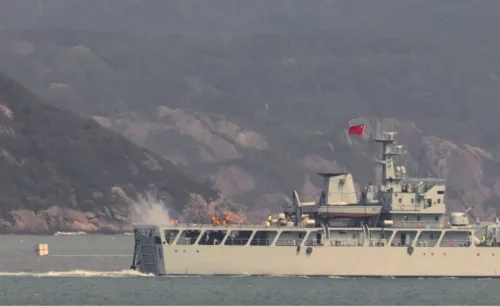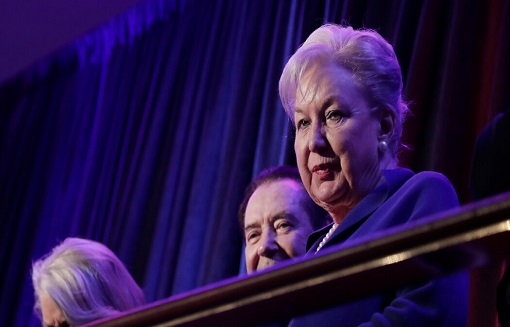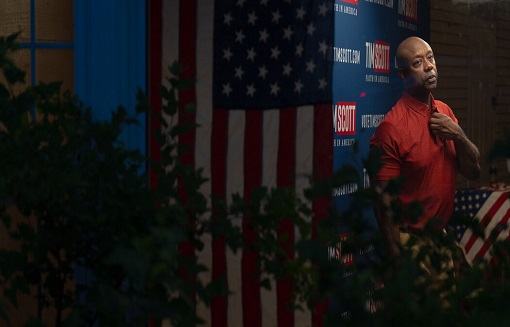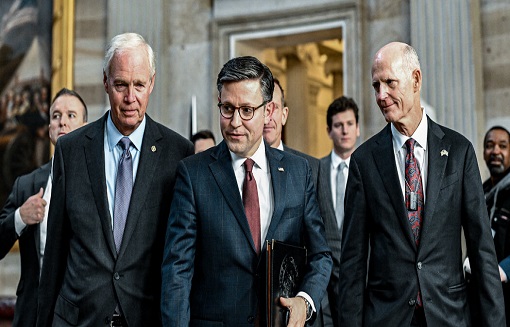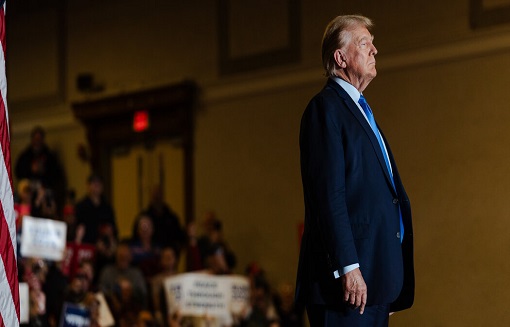In recent years, tensions between China and Taiwan have escalated. On April 5th, 2023, China launched a three-day military drill around Taiwan. The move has raised concerns about China’s intentions towards the self-ruled island. In this article, we will examine the reasons behind China Launches Three-Day Military Drills Around Taiwan:
Background on Taiwan-China Relations
Taiwan is a self-governing democratic island located in the South China Sea. It has its government, economy, and military, but China claims sovereignty over Taiwan. The One China policy, which is a diplomatic agreement between China and many countries, recognizes Taiwan as a part of China. However, Taiwan rejects this policy and considers itself an independent country. The current situation between Taiwan and China is tense, with China increasing military and diplomatic pressure on Taiwan in recent years.
A brief history of Taiwan:
Taiwan has a complex and diverse history. The island has been inhabited by indigenous people for thousands of years and was later colonized by the Dutch, Spanish, and Chinese. In the late 19th century, Taiwan became a part of the Qing Dynasty of China. After World War II, Taiwan returned to China, but in 1949, when the Communist Party of China came to power, the Nationalist Party (Kuomintang) fled to Taiwan and established a government there. Since then, Taiwan has functioned as a separate entity from China, with its government, economy, and military. However, China continues to claim sovereignty over Taiwan, leading to ongoing tensions between the two sides.
The One China policy:
The One China policy is a diplomatic agreement between China and many countries that recognizes Taiwan as a part of China. This policy was first introduced in the 1970s when many countries began to recognize the People’s Republic of China (PRC) as the legitimate government of China, and not the Republic of China (ROC). Which controlled Taiwan at the time. Under the One China policy, countries that recognize the PRC agree not to establish official diplomatic relations with Taiwan, and to support China’s position that there is only one China, of which Taiwan is a part. However, Taiwan rejects the One China policy and considers itself an independent country. The policy remains a controversial issue in international politics and continues to shape the relationship between China and Taiwan.
The current situation between Taiwan and China:
The current situation between Taiwan and China is tense, with China increasing military and diplomatic pressure on Taiwan in recent years. China claims sovereignty over Taiwan and has refused to renounce the use of force to take control of the island, which it considers a breakaway province. It has been increasing military activities around Taiwan, including regular military exercises and sending military planes and ships into Taiwan’s air and sea space. China has also been using diplomatic pressure to isolate Taiwan, such as persuading countries to sever diplomatic ties with Taiwan. In response, Taiwan has been strengthening its military capabilities and seeking support from other countries. The situation remains a potential flashpoint in the region, with the possibility of military conflict between the two sides.
The Military Drill
China launched a three-day military drill around Taiwan on April 5th, 2023. The drill involved air, sea, and land forces, and was conducted in the Taiwan Strait and surrounding areas. The drill was one of the largest China has conducted in recent years and involved thousands of troops, fighter jets, warships, and submarines.
According to Chinese state media, the purpose of the drill was to improve the military’s ability to respond to security threats and safeguard national sovereignty. However, some experts believe that the drill was a show of force and a warning to Taiwan and other countries in the region.
Date and location of the drill:
According to recent reports, China has launched three-day military drills around Taiwan. The drills began on April 5, 2023, and are taking place in the waters near Taiwan. China has described the drills as routine exercises aimed at improving its military capabilities and maintaining national sovereignty. However, the timing and location of the drills have raised concerns in Taiwan and other countries, given the ongoing tensions between China and Taiwan.
Scope of the drill:
The scope of the military drills launched by China around Taiwan is not yet clear. However, reports indicate that the drills involve multiple branches of China’s military, including the navy, air force, and missile units. The exercises are likely to include simulated attacks on targets, such as ships and aircraft, as well as training in coordination and communication between different military units. The drills are intended to test and improve China’s military readiness and capabilities, and to send a message to Taiwan and other countries in the region about China’s military strength. The scope and intensity of the drills are being closely monitored by Taiwan and other countries, amid concerns about the potential for military conflict in the region.
Purpose of the drill:
The purpose of the military drills launched by China around Taiwan is to improve its military capabilities and maintain national sovereignty. China has stated that the drills are routine exercises, and not targeted at any particular country or region. However, the timing and location of the drills have raised concerns among Taiwan and other countries, given the ongoing tensions between China and Taiwan. The drills are also seen as a message to Taiwan and other countries in the region, demonstrating China’s military strength and willingness to defend its territorial claims.
China’s Intentions
There are several possible motives behind China’s military drill around Taiwan. Politically, China wants to assert its authority over Taiwan and prevent other countries from recognizing Taiwan’s independence. Economically, China wants to maintain its influence over Taiwan’s economy, which is closely tied to China’s. Militarily, China wants to strengthen its military capabilities in the region and intimidate Taiwan and other countries that may challenge its territorial claims.
Political motives:
The military drills launched by China around Taiwan are widely seen as having political motives. China has long claimed sovereignty over Taiwan and sees it as a part of its territory. The drills are likely intended to demonstrate China’s military strength and to send a message to Taiwan and other countries that China is willing and able to defend its territorial claims. The timing of the drills, amid ongoing tensions between China and Taiwan, suggests that they are intended to assert China’s dominance in the region and intimidate Taiwan. The drills may also be intended to signal to other global powers, particularly the United States, that China is willing to take aggressive actions to protect its interests in the region.
Economic motives:
There may also be economic motives behind China’s military drills around Taiwan. Taiwan is a significant economic player in the region and has close economic ties with many countries, including China. However, Taiwan’s independence movement ad its efforts to expand its international presence have been seen as a threat to China’s economic and political interests. By demonstrating its military strength and willingness to assert its territorial claims, China may be seeking to deter Taiwan from taking actions that could harm its economic interests, such as seeking greater international recognition or forming alliances with other countries. Additionally, the drills may be intended to send a message to other countries in the region that China is a dominant economic and military power, and that they should be wary of taking actions that could provoke China or harm its economic interests.
Military motives:
China’s military drills around Taiwan also have significant military motives. China has been rapidly modernizing and expanding its military in recent years and has sought to assert its dominance in the region. The drills are intended to improve China’s military capabilities and readiness and to test its ability to respond to potential threats in the region. They may also be intended to intimidate Taiwan and other countries and to demonstrate China’s military power and willingness to use force if necessary to defend its territorial claims. Additionally, the drills may be intended to send a message to other global powers, particularly the United States, that China is willing and able to challenge its military presence and influence in the region. The military motives behind the drills reflect China’s desire to establish itself as a dominant military power in the region and to protect its interests through military means if necessary.
Taiwan’s Response
Taiwan’s government issued a statement expressing concern over China’s military drill and urging China to maintain peace and stability in the region. Taiwan also conducted its military exercises in response to China’s drill. The international community, including the United States and Japan. Also expressed concern over the military drill and urged China to exercise restraint.
Statement from Taiwan’s government:
The Taiwan government has responded to China’s military drills with concern, calling on China to exercise restraint. And avoid actions that could escalate tensions in the region. In a statement, Taiwan’s defence ministry said that the drills were a “serious provocation” and a threat to regional peace and stability. Taiwan has long been wary of China’s military intentions. And the drills are seen as a potential precursor to a military invasion or blockade of Taiwan. Taiwan’s government has called on the international community to support its efforts to maintain its sovereignty and resist Chinese aggression.
Military preparedness:
China’s military drills around Taiwan highlight the importance of military preparedness in the region. Taiwan has been working to improve its military capabilities in recent years. Including through the acquisition of advanced weaponry and the development of a more robust military strategy. Taiwan’s military has been conducting its military exercises in response to China’s drills. To improve its readiness and ability to respond to potential threats. Additionally, Taiwan has sought to strengthen its military alliances and partnerships with other countries, particularly the United States. Which has pledged to support Taiwan’s defence in the event of an attack. China’s military expansion and assertiveness in the region have raised concerns about a potential military conflict in the future. And highlight the need for all countries in the region to maintain a strong and effective military posture.
International response:
China’s military drills around Taiwan have been met with concern and criticism from the international community. The United States and other Western countries have called on China to exercise restraint. And avoid actions that could escalate tensions in the region. The U.S. has also reaffirmed its commitment to Taiwan’s defence. And has sent military ships and planes to the region to monitor the drills and to show support for Taiwan. Other countries in the region, including Japan and South Korea. Have also expressed concern about the drills and the potential for a military conflict in the region. The drills have raised concerns about the potential for a larger regional conflict. And have highlighted the need for all countries to work together to maintain peace and stability in the region.
Implications for the Region
China’s military drill around Taiwan has several implications for the region. It could further strain Taiwan-China relations and increase tensions in the region. It could also lead to a military conflict between China and Taiwan. Which would have serious consequences for regional stability and global politics. Additionally, the military drill could further increase China’s influence in the region and challenge the United States’ strategic interests in the area.
Impact on Taiwan-China relations:
China’s military drills around Taiwan are likely to further strain already-tense relations between Taiwan and China. Taiwan has long been a source of contention between the two countries. With China claiming Taiwan as part of its territory and Taiwan asserting its independence. China’s military expansion and assertiveness in the region have heightened concerns about the potential for a military conflict. And the drills are seen as a potential precursor to a larger military action against Taiwan. Taiwan’s government has responded to the drills with concern and has called on China to exercise restraint and avoid actions. That could escalate tensions in the region. The drills are likely to further solidify Taiwan’s resolve to maintain its independence and territorial integrity.
Impact on regional stability:
China’s military drills around Taiwan are likely to have a significant impact on regional stability. The drills are part of China’s broader efforts to expand its military capabilities and assert. Its influence in the region and are seen as a potential precursor to a larger military action against Taiwan. This has raised concerns about the potential for a larger regional conflict, particularly if other countries become involved. The drills have highlighted the need for all countries in the region to work together to maintain peace and stability. The United States and other Western countries have called on China to exercise restraint and avoid actions. That could escalate tensions in the region.
Impact on global politics:
China’s military drills around Taiwan are also likely to have a significant impact on global politics. The drills come at a time when China is seeking to expand its global influence. It has been increasingly assertive in its territorial claims in the South China Sea and other regions. Drills are part of China’s broader efforts to expand its military capabilities. And assert its influence in the region and are likely to be viewed as a provocative act by other countries. Particularly the United States. The drills have raised concerns about the potential for a larger military conflict. And have underscored the need for effective diplomatic engagement and crisis management.

